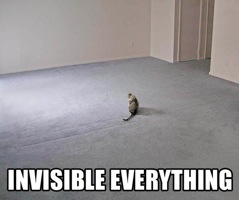 Ben Grey got in touch via a Direct Message (DM) on Twitter earlier this week asking my opinion and for some help. Although I haven’t (virtually) known Ben for that long, I like him. He comes across as a intelligent, knowledgeable, considered – yet humble and understated kind of guy. Given that, and the fact that what he was asking of me is close to my heart, of course I’ve responded! 😀
Ben Grey got in touch via a Direct Message (DM) on Twitter earlier this week asking my opinion and for some help. Although I haven’t (virtually) known Ben for that long, I like him. He comes across as a intelligent, knowledgeable, considered – yet humble and understated kind of guy. Given that, and the fact that what he was asking of me is close to my heart, of course I’ve responded! 😀
Ben asked:
I thought it would be helpful, and perhaps a powerful learning opportunity as well as resource, if I could gather a series of responses from a variety of minds in the field of education on the question I posed in my recent Tech & Learning post, “Why Technology?” http://www.techlearning.com/blogs/20444
…
If you’re up for it, would you mind giving me your input on the question? That can be done in the form of an email, a blog post, a comment on the T&L blog, or some other form of your choosing.
The problem is this: it’s easy to cut funding on technology-related projects citing technology as some kind of ‘luxury’ or ‘optional add-on’. I’ve got three points in reply to Ben’s post:
- What price education?
- Learning cultures and communities
- Invisible technology
I shall take each point, as they say, in turn:
What price education?
 In his post Why Technology? Ben cites economic problems as reasons for school districts in the U.S. cutting back:
In his post Why Technology? Ben cites economic problems as reasons for school districts in the U.S. cutting back:
I’ve heard from several colleagues in various states that there is pressure mounting to cut both future and existing plans for increasing technology utilization in their districts. Many districts are eliminating technology personnel as well. The primary catalyst for this is being blamed on the economy. Budgets are being trimmed and belts are being tightened, and it would appear to those wielding the shears that technology is the low hanging fruit.
At times of stress, we tend to revert back to what we know and be conservative. That’s why under-pressure teachers teach as they were themselves taught and parents tend to discipline their kids in the same way they were disciplined. But to do something just because ‘it’s the way it’s always been done’ or because someone you respect did it that way is fundamentally misguided. It takes into account neither context nor the purpose for which you or the organization for which you were are there.
Every generation needs to ask questions and tell its own story. Unfortunately, that hasn’t been done with education for at least a couple of generations. So as many commentators put it, we’re in the situation where students ‘power down’ when they come to school. They’re using the tools of previous generations. It’s at best anachronistic, and at worst dangerous to the intellectual health of the western world. 🙁
Learning cultures and communities
 My grandmother is fairly representative of her generation. Not only does she have no idea when it comes to the internet, but she cannot comprehend how it can allow ‘communities’ to spring up. The latter point is something that is shared by others, some of whom are much younger than her. I have argued this point before, but most teachers, themselves being successful at school under the ‘old system,’ have if not an opposition to wholesale changes in education then certainly an inertia to change. Hence the status quo reigns supreme.
My grandmother is fairly representative of her generation. Not only does she have no idea when it comes to the internet, but she cannot comprehend how it can allow ‘communities’ to spring up. The latter point is something that is shared by others, some of whom are much younger than her. I have argued this point before, but most teachers, themselves being successful at school under the ‘old system,’ have if not an opposition to wholesale changes in education then certainly an inertia to change. Hence the status quo reigns supreme.
We’re used to both seeing school buildings and having not only children’s lives but those of adults being centred around the school day and the school year. Never mind that, for example, the long summer holiday was a result of a no-longer-needed nod to children helping with harvests! We carry on with what we’ve got because it’s familiar. But familiarity is no basis on which to resist change.
Newspapers and the media in general bemoan the breakdown of communities. By that, of course, they mean physical communities: people talking over hedges, leaving their doors unlocked, that sort of thing. What is ignored in their reactionary rants is abundance of technology-mediated networks. (I hesitate to use the word ‘virtual’ as it makes them sound less ‘real’) Just because older generations do not realise the importance of technology for communication should not mean they deny access to it to those who are already using it for such purposes.
Invisible technology
 But what is ‘technology’ after all? Pen and paper are ‘technologies’ yet we don’t tend to think of them as such. I would argue that it exactly our conception of something being ‘a technology’ that places an unnecessary barrier in the way of its widespread use. I don’t believe its simply playing with semantics to talk of ‘tools’ instead of ‘technologies’ – especially when the discussions about ‘hardware’ and ‘software’ becomes if not blurred then increasingly irrelevant with the advent of cloud computing. Laptops, after all, are almost commodity items these days.
But what is ‘technology’ after all? Pen and paper are ‘technologies’ yet we don’t tend to think of them as such. I would argue that it exactly our conception of something being ‘a technology’ that places an unnecessary barrier in the way of its widespread use. I don’t believe its simply playing with semantics to talk of ‘tools’ instead of ‘technologies’ – especially when the discussions about ‘hardware’ and ‘software’ becomes if not blurred then increasingly irrelevant with the advent of cloud computing. Laptops, after all, are almost commodity items these days.
To discuss technology is to talk about the wrong thing. You will always lose a debate if the only position from which you argue is that we should use more technology in education. The technology needs to be used as a means to an end, not as an end in itself. That’s for specialized clubs, hobbyists and those for whom technology is a passion. Education has the dual role of preparing young people for society and opening their eyes and minds. If technology, in whatever guise it takes, helps with that then so much the better.
At the end of the day, technology has the potential to change relationships and therefore disrupt power structures. I can’t help but think that it’s the desire of teachers to remain at the front of classrooms, senior leaders to remain behind desks, and parents to stick to what they know that results in no real fundamental, technology-driven changes happening in education.
What do YOU think? Do you agree with the above? What IS the role of technology in education? Join the discussion! 😀
Short URL for this blog post (for Twitter, etc.) = http://bit.ly/whytech


 Ben Grey
Ben Grey In his post
In his post  My grandmother is fairly representative of her generation. Not only does she have no idea when it comes to the internet, but she cannot comprehend how it can allow ‘communities’ to spring up. The latter point is something that is shared by others, some of whom are much younger than her. I have argued this point before, but most teachers, themselves being successful at school under the ‘old system,’ have if not an opposition to wholesale changes in education then certainly an inertia to change. Hence the status quo reigns supreme.
My grandmother is fairly representative of her generation. Not only does she have no idea when it comes to the internet, but she cannot comprehend how it can allow ‘communities’ to spring up. The latter point is something that is shared by others, some of whom are much younger than her. I have argued this point before, but most teachers, themselves being successful at school under the ‘old system,’ have if not an opposition to wholesale changes in education then certainly an inertia to change. Hence the status quo reigns supreme. But what is ‘technology’ after all? Pen and paper are ‘technologies’ yet we don’t tend to think of them as such. I would argue that it exactly our conception of something being ‘a technology’ that places an unnecessary barrier in the way of its widespread use. I don’t believe its simply playing with semantics to talk of ‘tools’ instead of ‘technologies’ – especially when the discussions about ‘hardware’ and ‘software’ becomes if not blurred then increasingly irrelevant with the advent of cloud computing. Laptops, after all, are almost commodity items these days.
But what is ‘technology’ after all? Pen and paper are ‘technologies’ yet we don’t tend to think of them as such. I would argue that it exactly our conception of something being ‘a technology’ that places an unnecessary barrier in the way of its widespread use. I don’t believe its simply playing with semantics to talk of ‘tools’ instead of ‘technologies’ – especially when the discussions about ‘hardware’ and ‘software’ becomes if not blurred then increasingly irrelevant with the advent of cloud computing. Laptops, after all, are almost commodity items these days.